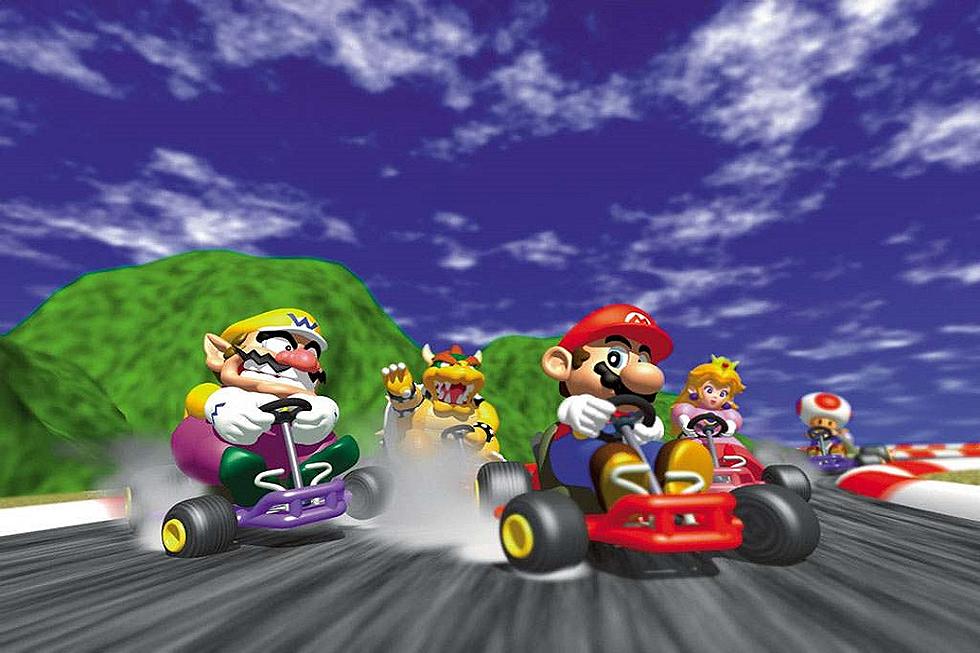
Opinion: Wii Fans Don’t Know What the Wii U Is
When Nintendo first announced the Wii U at E3, I thought it was a horrible idea. I didn’t think this because the console was coming out too soon, or because of its unconventional tablet controller, or even because of its weak launch line-up. No, I thought that Nintendo was making a horrible mistake naming their next console the “Wii U” or for that matter any derivative of the name Wii.
I understand why Nintendo did it. The Wii was one of the best-selling consoles of all time. It easily bested all of its competitors in the previous console generation, opening up the world of video games to casual gamers who may never have touched the medium otherwise. The Wii has an outstandingly large install base, with tons of fans still playing things like Wii Sports, the original Wii tech demo, today. So of course Nintendo would want to carry over the Wii’s momentum into the next console generation by naming their next console similarly.
But the problem is, Nintendo forgot who the Wii appealed to. The Wii was known for being the console of choice for casual gamers and families. It was the easy-to-use console where grandma played Wii Sports bowling. It was the console you found hooked up to monitors in bars for drunks who never even touched a gamepad to still enjoy playing a match of ping-pong. It was the console your four-year-old cousin could use to play games based on his Saturday morning cartoons, or your sister used along with Wii Fit to lose weight. It wasn’t the console that hardcore gamers and tech heads who buy all the latest gadgets use.
I’ll sum this marketing problem up with a real conversation I had with my Grandpa.
“So Grandpa. You liked the Wii right? The Wii U is coming out. What do you think of it?”
“What’s a Wii U?”
“It’s Nintendo’s next console. The next Wii. It’s more powerful and has this tablet control and… (launches into a description of everything the Wii can do.)”
“That’s nice.”
“So are you going to get one?”
“I already have a Wii that works fine. Why would I need another one?”
That is the problem in a nutshell. Much of the Wii’s casual fanbase doesn’t really know how video games work. They look at it like any other pieces of electronics. You don’t need the newest top of the line DVD player if your old one still works. You don’t need a new HD LED TV if your old CRT still works. Similarly, you don’t need the best and newest Wii if your old Wii still works.
Lest you think I am exaggerating and rampantly stereotyping the Wii’s core users, Satoru Iwata, president of Nintendo itself says this has been an issue. "Some have the misunderstanding that Wii U is just Wii with a pad for games, and others even consider Wii U GamePad as a peripheral device connectable to Wii," said Iwata in a recent financial results briefing. "We feel deeply responsible for not having tried hard enough to have consumers understand the product."
Would this have been completely avoided if Nintendo went with another naming scheme? Not necessarily, but at the very least they would have had a better chance of people understanding. If they called it something like “The Nintendo Next-Generation System,” and billed it as “from the makers of the Wii,” or “from the people who brought you the Wii,” people with less experience with console turnover cycles would have immediately realized that this is a new product that plays new games. The fact that the Wii U uses old Wiimotes as controllers isn’t helping much either.
Iwata and Nintendo has said that they will revamp the marketing strategy, but at this point it may be a bit late. It may be impossible to get a largely casual fanbase to upgrade to a new console. It might be that they just don’t care enough to play newer games. As I said before, lots of them are still playing Wii Sports, and Nintendoland didn’t really strike people as a killer app. So many of the Wii’s casual followers may have already come to the conclusion that the Wii U holds nothing for them. Whether or not a company can market console “upgrades” to a casual players is another article entirely. For now, it’s clear Nintendo is having problems, and it’s not a stretch to say that some of those problems from the Wii U’s name.
Angelo Dargenio is a freelance staffer at Arcade Sushi. His opinions are his own and do not reflect the opinions of the staff at Arcade Sushi or Townsquare Media.
More From Arcade Sushi
![Mario Is a Man of Many Hats in Super Mario Odyssey [Preview]](http://townsquare.media/site/550/files/2017/06/super-mario-odyssey.jpg?w=980&q=75)
![PAX East 2017: Mario Kart 8 Deluxe is More Than Just a Shiny Coat of Paint [Preview]](http://townsquare.media/site/550/files/2017/03/mk8dlx.jpg?w=980&q=75)




![The Nintendo Switch’s Initial Library Preaches Quality over Quantity [Preview]](http://townsquare.media/site/550/files/2017/01/switch-preview-4.jpg?w=980&q=75)
![Nintendo’s Next Killer App Could Be As Easy As 1,2 Switch [Preview]](http://townsquare.media/site/550/files/2017/01/1-2-switch-1.jpg?w=980&q=75)
![Nintendo’s New Console Will Switch The Way We Play [Preview]](http://townsquare.media/site/550/files/2017/01/nintendo-switch-1.jpg?w=980&q=75)
